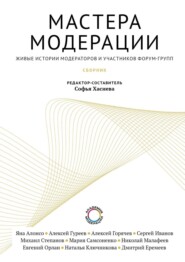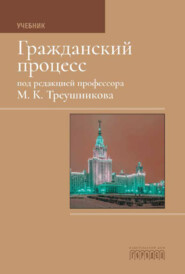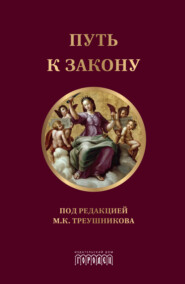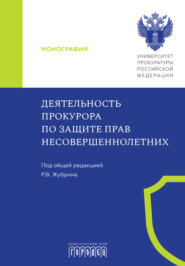По всем вопросам обращайтесь на: info@litportal.ru
(©) 2003-2024.
✖
International Short Stories: French
Настройки чтения
Размер шрифта
Высота строк
Поля
"O sent of heaven! O divine angel!" cried Zadig, humbly prostrating himself on the ground, "hast thou then descended from the Empyrean to teach a weak mortal to submit to the eternal decrees of Providence?"
"Men," said the angel Jesrad, "judge of all without knowing anything; and, of all men, thou best deservest to be enlightened."
Zadig begged to be permitted to speak. "I distrust myself," said he, "but may I presume to ask the favor of thee to clear up one doubt that still remains in my mind? Would it not have been better to have corrected this youth, and made him virtuous, than to have drowned him?"
"Had he been virtuous," replied Jesrad, "and enjoyed a longer life, it would have been his fate to be assassinated himself, together with the wife he would have married, and the child he would have had by her."
"But why," said Zadig, "is it necessary that there should be crimes and misfortunes, and that these misfortunes should fall on the good?"
"The wicked," replied Jesrad, "are always unhappy; they serve to prove and try the small number of the just that are scattered through the earth; and there is no evil that is not productive of some good."
"But," said Zadig, "suppose there were nothing but good and no evil at all."
"Then," replied Jesrad, "this earth would be another earth. The chain of events would be ranged in another order and directed by wisdom; but this other order, which would be perfect, can exist only in the eternal abode of the Supreme Being, to which no evil can approach. The Deity hath created millions of worlds among which there is not one that resembles another. This immense variety is the effect of His immense power. There are not two leaves among the trees of the earth, nor two globes in the unlimited expanse of heaven that are exactly similar; and all that thou seest on the little atom in which thou art born, ought to be in its proper time and place, according to the immutable decree of Him who comprehends all. Men think that this child who hath just perished is fallen into the water by chance; and that it is by the same chance that this house is burned; but there is no such thing as chance; all is either a trial, or a punishment, or a reward, or a foresight. Remember the fisherman who thought himself the most wretched of mankind. Oromazes sent thee to change his fate. Cease, then, frail mortal, to dispute against what thou oughtest to adore."
"But," said Zadig – as he pronounced the word "But," the angel took his flight toward the tenth sphere. Zadig on his knees adored Providence, and submitted. The angel cried to him from on high, "Direct thy course toward Babylon."
THE ENIGMAS
Zadig, entranced, as it were, and like a man about whose head the thunder had burst, walked at random. He entered Babylon on the very day when those who had fought at the tournaments were assembled in the grand vestibule of the palace to explain the enigmas and to answer the questions of the grand magi. All the knights were already arrived, except the knight in green armor. As soon as Zadig appeared in the city the people crowded round him; every eye was fixed on him; every mouth blessed him, and every heart wished him the empire. The envious man saw him pass; he frowned and turned aside. The people conducted him to the place where the assembly was held. The queen, who was informed of his arrival, became a prey to the most violent agitations of hope and fear. She was filled with anxiety and apprehension. She could not comprehend why Zadig was without arms, nor why Itobad wore the white armor. A confused murmur arose at the sight of Zadig. They were equally surprised and charmed to see him; but none but the knights who had fought were permitted to appear in the assembly.
"I have fought as well as the other knights," said Zadig, "but another here wears my arms; and while I wait for the honor of proving the truth of my assertion, I demand the liberty of presenting myself to explain the enigmas." The question was put to the vote, and his reputation for probity was still so deeply impressed in their minds, that they admitted him without scruple.
The first question proposed by the grand magi was: "What, of all things in the world, is the longest and the shortest, the swiftest and the slowest, the most divisible and the most extended the most neglected and the most regretted, without which nothing can be done, which devours all that is little, and enlivens all that is great?"
Itobad was to speak. He replied that so great a man as he did not understand enigmas, and that it was sufficient for him to have conquered by his strength and valor. Some said that the meaning of the enigma was Fortune; some, the Earth; and others the Light. Zadig said that it was Time. "Nothing," added he, "is longer, since it is the measure of eternity; nothing is shorter, since it is insufficient for the accomplishment of our projects; nothing more slow to him that expects, nothing more rapid to him that enjoys; in greatness, it extends to infinity; in smallness, it is infinitely divisible; all men neglect it; all regret the loss of it; nothing can be done without it; it consigns to oblivion whatever is unworthy of being transmitted to posterity, and it immortalizes such actions as are truly great." The assembly acknowledged that Zadig was in the right.
The next question was: "What is the thing which we receive without thanks, which we enjoy without knowing how, which we give to others when we know not where we are, and which we lose without perceiving it?"
Everyone gave his own explanation. Zadig alone guessed that it was Life, and explained all the other enigmas with the same facility. Itobad always said that nothing was more easy, and that he could have answered them with the same readiness had he chosen to have given himself the trouble. Questions were then proposed on justice, on the sovereign good, and on the art of government. Zadig's answers were judged to be the most solid. "What a pity is it," said they, "that such a great genius should be so bad a knight!"
"Illustrious lords," said Zadig, "I have had the honor of conquering in the tournaments. It is to me that the white armor belongs. Lord Itobad took possession of it during my sleep. He probably thought that it would fit him better than the green. I am now ready to prove in your presence, with my gown and sword, against all that beautiful white armor which he took from me, that it is I who have had the honor of conquering the brave Otamus."
Itobad accepted the challenge with the greatest confidence. He never doubted but that, armed as he was, with a helmet, a cuirass, and brassarts, he would obtain an easy victory over a champion in a cap and nightgown. Zadig drew his sword, saluting the queen, who looked at him with a mixture of fear and joy. Itobad drew his without saluting anyone. He rushed upon Zadig, like a man who had nothing to fear; he was ready to cleave him in two. Zadig knew how to ward off his blows, by opposing the strongest part of his sword to the weakest of that of his adversary, in such a manner that Itobad's sword was broken. Upon which Zadig, seizing his enemy by the waist, threw him on the ground; and firing the point of his sword at the breastplate, "Suffer thyself to be disarmed," said he, "or thou art a dead man."
Itobad, always surprised at the disgraces that happened to such a man as he, was obliged to yield to Zadig, who took from him with great composure his magnificent helmet, his superb cuirass, his fine brassarts, his shining cuishes; clothed himself with them, and in this dress ran to throw himself at the feet of Astarte. Cador easily proved that the armor belonged to Zadig. He was acknowledged king by the unanimous consent of the whole nation, and especially by that of Astarte, who, after so many calamities, now tasted the exquisite pleasure of seeing her lover worthy, in the eyes of all the world, to be her husband. Itobad went home to be called lord in his own house. Zadig was king, and was happy. The queen and Zadig adored Providence. He sent in search of the robber Arbogad, to whom he gave an honorable post in his army, promising to advance him to the first dignities if he behaved like a true warrior, and threatening to hang him if he followed the profession of a robber.
Setoc, with the fair Almona, was called from the heart of Arabia and placed at the head of the commerce of Babylon. Cador was preferred and distinguished according to his great services. He was the friend of the king; and the king was then the only monarch on earth that had a friend. The little mute was not forgotten.
But neither could the beautiful Semira be comforted for having believed that Zadig would be blind of an eye; nor did Azora cease to lament her having attempted to cut off his nose. Their griefs, however, he softened by his presents. The envious man died of rage and shame. The empire enjoyed peace, glory, and plenty. This was the happiest age of the earth; it was governed by love and justice. The people blessed Zadig, and Zadig blessed Heaven.
ABANDONED
BY GUY DE MAUPASSANT
"I really think you must be mad, my dear, to go for a country walk in such weather as this. You have had some very strange notions for the last two months. You drag me to the seaside in spite of myself, when you have never once had such a whim during all the forty-four years that we have been married. You chose Fécamp, which is a very dull town, without consulting me in the matter, and now you are seized with such a rage for walking, you who hardly ever stir out on foot, that you want to take a country walk on the hottest day of the year. Ask d'Apreval to go with you, as he is ready to gratify all your whims. As for me, I am going back to have a nap."
Madame de Cadour turned to her old friend and said:
"Will you come with me, Monsieur d'Apreval?"
He bowed with a smile, and with all the gallantry of former years:
"I will go wherever you go," he replied.
"Very well, then, go and get a sunstroke," Monsieur de Cadour said; and he went back to the Hôtel des Bains to lie down for an hour or two.
As soon as they were alone, the old lady and her old companion set off, and she said to him in a low voice, squeezing his hand:
"At last! at last!"
"You are mad," he said in a whisper. "I assure you that you are mad. Think of the risk you are running. If that man – "
She started.
"Oh! Henri, do not say that man, when you are speaking of him."
"Very well," he said abruptly, "if our son guesses anything, if he has any suspicions, he will have you, he will have us both in his power. You have got on without seeing him for the last forty years. What is the matter with you to-day?"
They had been going up the long street that leads from the sea to the town, and now they turned to the right, to go to Etretat. The white road stretched in front of them under a blaze of brilliant sunshine, so they went on slowly in the burning heat. She had taken her old friend's arm, and was looking straight in front of her, with a fixed and haunted gaze, and at last she said:
"And so you have not seen him again, either?"
"No, never."
"Is it possible?"
"My dear friend, do not let us begin that discussion again. I have a wife and children and you have a husband, so we both of us have much to fear from other people's opinion."
She did not reply; she was thinking of her long past youth and of many sad things that had occurred. How well she recalled all the details of their early friendship, his smiles, the way he used to linger, in order to watch her until she was indoors. What happy days they were, the only really delicious days she had ever enjoyed, and how quickly they were over!
And then – her discovery – of the penalty she paid! What anguish!
Of that journey to the South, that long journey, her sufferings, her constant terror, that secluded life in the small, solitary house on the shores of the Mediterranean, at the bottom of a garden, which she did not venture to leave. How well she remembered those long days which she spent lying under an orange tree, looking up at the round, red fruit, amid the green leaves. How she used to long to go out, as far as the sea, whose fresh breezes came to her over the wall, and whose small waves she could hear lapping on the beach. She dreamed of its immense blue expanse sparkling under the sun, with the white sails of the small vessels, and a mountain on the horizon. But she did not dare to go outside the gate. Suppose anybody had recognized her!
And those days of waiting, those last days of misery and expectation! The impending suffering, and then that terrible night! What misery she had endured, and what a night it was! How she had groaned and screamed! She could still see the pale face of her lover, who kissed her hand every moment, and the clean-shaven face of the doctor and the nurse's white cap.
And what she felt when she heard the child's feeble cries, that wail, that first effort of a human's voice!
And the next day! the next day! the only day of her life on which she had seen and kissed her son; for, from that time, she had never even caught a glimpse of him.
And what a long, void existence hers had been since then, with the thought of that child always, always floating before her. She had never seen her son, that little creature that had been part of herself, even once since then; they had taken him from her, carried him away, and had hidden him. All she knew was that he had been brought up by some peasants in Normandy, that he had become a peasant himself, had married well, and that his father, whose name he did not know, had settled a handsome sum of money on him.
How often during the last forty years had she wished to go and see him and to embrace him! She could not imagine to herself that he had grown! She always thought of that small human atom which she had held in her arms and pressed to her bosom for a day.
How often she had said to M. d'Apreval: "I cannot bear it any longer; I must go and see him."
But he had always stopped her and kept her from going. She would be unable to restrain and to master herself; their son would guess it and take advantage of her, blackmail her; she would be lost.

















